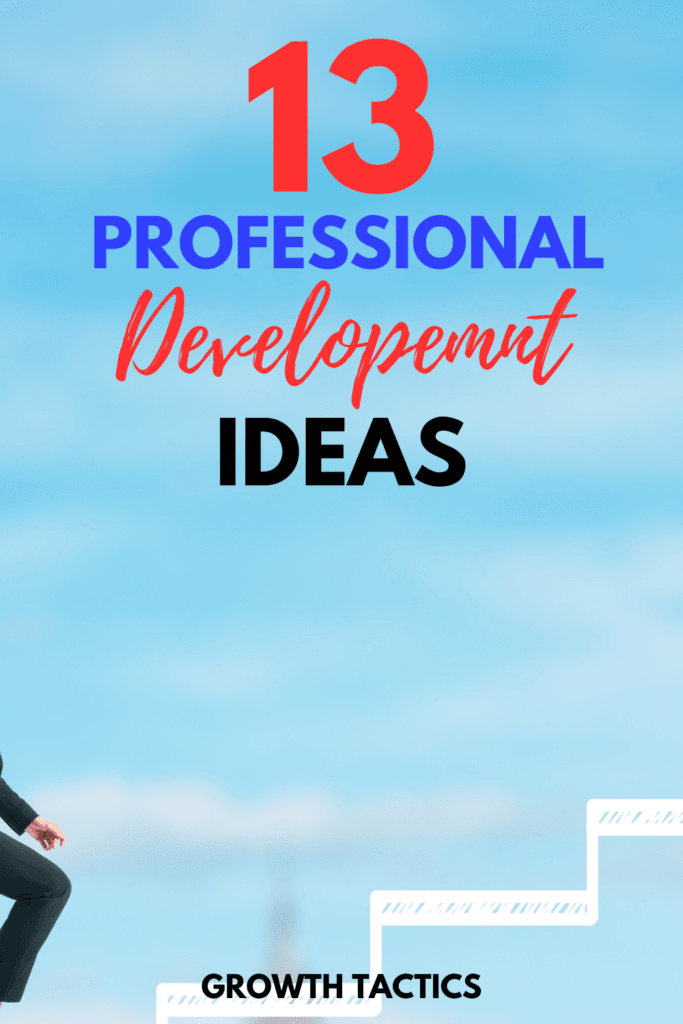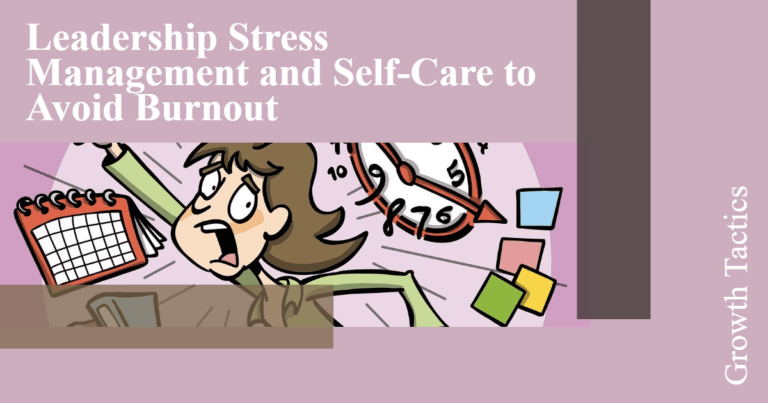In today’s fast-paced and ever-evolving business landscape, the key to sustained success lies not just in the skills and knowledge of your team but in their continuous growth and development. Professional development is a powerful catalyst that propels teams forward, fostering an environment of learning, innovation, and adaptability.
As a leader, I’ve witnessed firsthand the transformative impact of investing in professional development. When team members are allowed to expand their skills, explore new perspectives, and challenge themselves, they become more proficient in their roles and develop a deeper sense of purpose and engagement.
I vividly remember the pivotal moment when one of my team members, Sarah, attended a leadership development program. Initially hesitant, she returned with a newfound confidence and a renewed passion for her work. Her ability to effectively communicate and inspire others was remarkable, and she quickly became a driving force within our team, taking on more responsibilities and mentoring her colleagues.
Professional employee development is not just about acquiring new skills; it’s about cultivating a growth mindset that empowers individuals to embrace challenges, adapt to change, and continuously evolve. By fostering an environment that encourages learning and personal growth, we create a ripple effect that extends far beyond the boundaries of our workplace.
Jump To Section
Mentorship Programs: Guiding the Path to Growth
The Power of Mentorship
Mentorship can drive professional growth within your organization. By pairing seasoned professionals with those seeking guidance, you create a supportive space where knowledge, skills, and insights are shared. This benefits both mentors and mentees.
Learning from Experience
Mentees gain from their mentors’ firsthand experience and wisdom. Mentors offer advice, share best practices, and provide new perspectives on challenges. This helps mentees navigate their career paths and promotes growth.
Setting Up for Success
A successful mentorship program needs careful planning. Establish clear goals, roles, and responsibilities. Choose mentors based on their experience and willingness to invest in their mentees. Mentees should be open to learning and committed to their own development.
The Matchmaking Process
Pairing mentors and mentees is key. Consider factors like career goals, personality, and expertise to make productive matches. Schedule regular meetings to foster open communication and meaningful discussions.
Creating a Supportive Environment
Respect, trust, and a willingness to learn are essential for mentorship. Encourage confidentiality and open communication so mentees can share challenges without fear.
Providing Resources
Organizations should support mentorship programs with resources like mentor training, networking opportunities, and recognition for participants. This ensures the success of the program and the growth of everyone involved.
Time Management Mastery: Unlocking Productivity
Why Time Management Matters
In today’s fast-paced workplace, managing time well is key to success. Many struggle with prioritizing tasks, meeting deadlines, and maintaining work-life balance. Implementing time management strategies can boost productivity, reduce stress, and create an organized environment.
Combatting Distractions
Distractions are a major hurdle. Email notifications and impromptu meetings can disrupt focus. Encourage your team to identify and eliminate time-wasters like excessive social media use and unnecessary multitasking.
Training and Techniques
Offer time management workshops and training. Teach methods like the Pomodoro technique, which focuses on intense work periods followed by breaks, or the Eisenhower Matrix, which helps prioritize tasks.
Utilizing Tools and Apps
Introduce time management tools and apps. Tools like project management software, calendar apps, and task managers can help your team stay organized. Encourage them to find what works best for their individual needs.
Embrace Individuality
Time management isn’t one-size-fits-all. Each team member has unique challenges and preferences. Foster open communication and let them share their experiences. Creating an environment that values time management can unlock your team’s full potential.
Your leadership can guide them towards greater productivity. Always remember: people first. Tailor your approach to meet their needs and watch them thrive.
Leadership Development: Cultivating Future Leaders
Why Leadership Matters
Effective leadership is the backbone of success. Investing in leadership development helps your team reach their full potential and ensures a future pipeline of skilled leaders. This is key for long-term growth and a culture of excellence.
Offer Leadership Training
Create comprehensive leadership courses and professional development activities. Focus on strategic thinking, decision-making, communication, team management, and other leadership skills. Equip your team with the tools and knowledge they need to lead with confidence and competence.
Empower Through Opportunities
Give employees chances to lead projects or teams. This hands-on experience builds their skills and fosters accountability. Support them with mentorship and resources for career advancement.
Recognize Achievements
Celebrate those who show outstanding leadership. Acknowledge and reward their efforts. This inspires others and creates a culture that values growth.
Prioritize Leadership Growth
Invest in leadership to ensure a bright future. By fostering a culture of continuous improvement and growth, you empower your team to unlock their leadership potential. Together, you’ll pave the way for success.
Remember, leadership starts with you. Be the leader who inspires and guides others to be their best.
Personal Development Plans: Charting the Path to Success
Empower Ownership
Let your team take charge of their growth. Encourage them to set personal goals. This fosters ownership and aligns their dreams with your organization’s goals.
Create a Roadmap
A personal development plan is a roadmap. It shows strengths, areas to improve, and career goals. Tailor these plans to fit individual skills, interests, and ambitions.
Involve the Team
Involve employees in crafting their plans. Encourage self-reflection and goal setting. Whether it’s learning new skills or exploring new roles, their active participation is key.
Align with Objectives
Align personal goals with the organization’s strategic priorities. This syncs individual growth with company success.
Track and Support
Regularly review progress. Celebrate milestones and offer feedback. Provide resources to keep employees on track.
Foster a Learning Culture
Empowering your team to chart their paths cultivates continuous learning. It boosts engagement and drives innovation. When employees feel valued and supported, they give their best.
Remember, leadership isn’t just about guiding others, it’s about helping them find their own path. So, guide with purpose, and watch your team soar.
Skill-Specific Development Training: Enhancing Expertise
Recognize the Need
In today’s fast-paced world, being well-rounded is key. Skill-specific training can fill in the gaps and help your team excel. Identify where improvements are needed to focus your training efforts.
Assess Skills
Conduct a skill assessment to spot what’s missing. Use self-evaluations, peer reviews, or performance evaluations. This will guide you in designing targeted training.
Customize Training
Focus on what’s relevant. If someone in sales needs better negotiation skills, create a training program with professional development topics just for that. This direct approach ensures practical, job-specific improvements.
Stay Current
In fast-changing industries, staying up-to-date is crucial. Offer ongoing training to keep your team in sync with the latest trends and technologies.
Invest for the Future
Skill-specific training doesn’t just help now, it prepares your team for tomorrow. Empower your team to grow and become valuable assets. Your investment in their skills will drive your organization’s success and competitiveness.
In leadership, we know that investing in people’s growth is what fuels success. So, prioritize skill development, and watch your team soar.
Strengthening Collaboration Through Team-Building
The Power of Teamwork
Teamwork is essential. When people work together, they achieve more. Team-building activities help foster this spirit of collaboration and employee engagement.
Breaking Down Barriers
These activities break down barriers and build trust. They encourage open communication and a sense of camaraderie. By participating in fun exercises, employees learn each other’s strengths and weaknesses.
Human Knot Challenge
One effective exercise is the “human knot” challenge. This activity promotes active listening, problem-solving, and compromise. It builds unity and shared purpose.
Egg Drop Challenge
Another great activity is the “egg drop” challenge. Teams design a protective casing for an egg using limited materials. This encourages creative thinking, resource management, and teamwork.
Cross-Functional Projects
Collaborative projects also serve as excellent team-building opportunities. Assign cross-functional teams to work together on a shared project. This promotes teamwork and a deeper understanding of various roles.
Creating a Supportive Environment
Team-building is about creating a supportive environment. Every team member should feel valued and empowered. By investing in these activities, you strengthen employee bonds and foster a culture of collaboration, innovation, and shared success.
Strong teams are built on trust, communication, and shared goals. Keep your team engaged, and watch your organization thrive.
Bridging the Communication Gap
The Lifeblood of Teamwork
Effective communication is crucial for any successful team. It fosters understanding, collaboration, and trust. By improving communication skills, we bridge gaps and create cohesive work environments.
Invest in Training
Workshops and seminars focusing on interpersonal communication, active listening, and conflict resolution are key. These sessions help your team express themselves clearly, understand others, and handle challenges with empathy.
The Power of Active Listening
Active listening is vital but often overlooked. Teach your team to listen attentively, ask clarifying questions, and provide thoughtful feedback. This promotes respect and inclusivity.
Mastering Conflict Resolution
Conflict resolution skills are essential. Train your team to identify root causes of conflicts, manage emotions, and find mutually beneficial solutions. This prevents minor issues from escalating.
Encouraging Open Dialogue
Remember, communication is a two-way street. Encourage open dialogue and provide a safe space for team members to express thoughts, concerns, and ideas. Foster transparency and welcome constructive feedback.
Cultivating a Positive Culture
By prioritizing communication skills, you enhance collaboration and productivity. More importantly, you create a positive work culture where everyone feels valued and heard.
Commit to developing these skills. Strong communication builds strong teams. Your leadership will inspire purpose-driven action and problem-solving. Invest in your people, and watch them thrive.
Mapping the Career Journey
Defining Clear Paths
Clear career paths help retain top talent. They give employees direction and purpose. Aligning their goals with the company’s aims ensures everyone is on the same page.
Tailoring Growth Opportunities
Career paths should fit individual strengths and interests. Regular development talks can pinpoint growth areas, needed training, or mentorship. This helps smooth transitions into new roles.
Investing in Development
Supporting career initiatives shows you care about employee growth. It fosters a culture of learning and development. This keeps job satisfaction high and makes you an attractive employer.
Empowering Ownership
Offer clear roadmaps for career growth. This empowers employees to own their professional journeys. When their goals match the company’s, both benefit, sparking innovation and success.
Creating a Win-Win Scenario
Aligning individual and organizational growth is a win-win. It drives productivity and ensures long-term success. Prioritize your people. Your investment in their growth will pay off.
Encourage your team to find their own paths and watch them thrive. Focus on individuality and create a motivated workforce.
Unlocking Growth with Soft Skills Training
Beyond Technical Skills
In today’s fast-paced workplace, technical skills alone aren’t enough. Soft skills are key to personal and professional growth. These are your emotional intelligence, adaptability, problem-solving abilities, and more.
Emotional Intelligence
Emotional intelligence helps you understand and manage your emotions while connecting with others. This skill strengthens relationships, teamwork, and decision-making. Learn to navigate complex situations with empathy and awareness.
Embracing Adaptability
Adaptability is crucial. Industries change, and new challenges arise. Those who adapt and pivot strategies thrive. Be ready to handle uncertainty, think creatively, and seize new opportunities.
Mastering Problem-Solving
Problem-solving is a must-have skill. Analyze situations, find root causes, and create solutions. Good problem-solvers tackle challenges efficiently and help their organizations succeed.
Investing in Training
Organizations should offer workshops tailored to their team’s needs. Interactive sessions and real-world case studies help employees practice and develop these skills.
Fostering a Positive Environment
Soft skills training boosts individual performance and creates a collaborative, productive workplace. Prioritize these skills to unlock your team’s full potential. Focus on personal growth, effective communication, and adaptability.
By developing these skills, you foster a culture where everyone thrives. Remember, purpose-driven action leads to leadership and problem-solving. Prioritize people first, and success will follow.
One-on-One Coaching: Tailored Guidance
Personalized Development
One-on-one coaching is key for professional growth. It’s personalized to fit your strengths and goals. This tailored approach pinpoints areas for growth, creating a custom plan just for you.
Expert Guidance
Work closely with an experienced coach. Gain insights and support from someone who knows the ropes. Open, honest discussions help you tackle challenges and receive feedback.
Thorough Assessment
Effective coaching starts with a clear assessment. Understand your current skills and areas that need improvement. This sets the foundation for a personalized plan.
Safe Space
A non-judgmental environment is crucial. Share your thoughts and concerns without fear. This open communication builds trust and helps you grow.
Regular Sessions
Coaching sessions should be regular and focused. Discuss skills, career goals, and challenges. Active listening and constructive feedback help you gain clarity and build confidence.
In sum, one-on-one coaching is about individualized growth and purposeful action. Embrace this opportunity to develop your unique path with the guidance of a trusted mentor.
Morale Boosting Activities: Engage and Motivate
Importance of High Morale
Keeping your team’s morale high is key. When people feel motivated and engaged, they work better, collaborate more, and help your organization succeed.
Team-Building Activities
Team-building boosts morale. Activities like picnics, sports events, or volunteer work bring everyone closer. These fun moments help build strong relationships and create lasting memories.
Recognition Programs
Recognition matters. Celebrate your team’s achievements, big or small. Use awards, handwritten notes, or shout-outs during meetings. Recognizing hard work makes everyone feel valued.
Positive Work Environment
A positive work environment is essential. Encourage open communication and respect. Give employees a chance to share ideas and concerns. Offer flexible work options to improve work-life balance.
Prioritize Morale
By focusing on morale-boosting activities, you engage and motivate your team. This leads to a productive and positive workplace where everyone thrives.
In leadership, it’s about putting people first. Strong teams lead to strong outcomes. Everyone has a unique role, and together, with purpose-driven actions, we achieve greatness.
Problem-Solving Workshops: Boost Critical Thinking
The Need for Effective Problem-Solving
Effective problem-solving is crucial in today’s fast-paced world. Problem-solving workshops can arm your team with the tools and mindset needed to tackle tough challenges. Focus on analytical thinking, creativity, and a solutions-driven approach.
Practical Exercises and Case Studies
Use practical exercises and case studies. These will help your team break down problems, find root causes, and explore innovative solutions. Encourage thinking outside the box and considering multiple viewpoints. Role-playing and group discussions enhance collaboration and decision-making.
Building Confidence and Resilience
Foster a culture of critical thinking. This empowers your team to face obstacles with confidence and resilience. They’ll learn to predict issues, reduce risks, and adapt easily. This proactive mindset boosts productivity and drives innovation.
Embrace Challenges for Growth
Problem-solving isn’t just about quick fixes. It’s about seeing challenges as chances to grow. Invest in your team’s problem-solving skills. Watch them thrive and turn adversity into opportunity.
Remember, empowering individuals leads to collective strength. Create purpose-driven actions and see your team soar.
Industry-Specific Training: Stay Ahead
The Need to Stay Relevant
In today’s fast-paced world, staying ahead is key. Equip your team with industry knowledge and skills. Invest in training tailored to your industry’s needs. This keeps your team adaptable and ready for change.
Go Beyond Basics
Industry-specific training means more than general learning. It dives into your sector’s details. Your team learns the latest rules, best practices, and market trends. This boosts their expertise and confidence.
Foster Continuous Learning
Training encourages a culture of growth. Your team becomes better at spotting opportunities and handling risks. They drive your business forward. Staying updated helps them stay agile and ready to pivot as needed.
Show Commitment to Growth
Prioritizing this training shows you care about your team’s success. It strengthens skills and builds loyalty. A well-trained team brings productivity and customer satisfaction. This sets your organization apart.
Remember, investing in your people is investing in your future. Equip them with purpose-driven skills and watch them, and your business thrive.
Conclusion: Embracing Continuous Growth
In today’s ever-evolving landscape, professional development is no longer a luxury; it’s a necessity. As leaders, it’s our responsibility to cultivate an environment that nurtures growth, fosters innovation, and empowers our team members to reach their full potential.
Tailoring professional development opportunities to the unique needs of your team is crucial. Every individual has their own strengths, weaknesses, and aspirations, and it’s our duty to provide personalized guidance and support. By actively listening to their goals and concerns, we can create a customized roadmap that aligns with their career aspirations and the organization’s objectives.
Purposeful action is the key to unlocking the true potential of your team. Implementing the professional development ideas outlined in this guide is just the beginning. Continuously seek innovative ways to challenge your team, encourage them to step out of their comfort zones, and embrace learning as a lifelong journey.
Remember, as leaders, our growth is intertwined with the growth of our team members. By supporting their professional development, we not only strengthen their skills and knowledge but also enhance our own leadership capabilities. Embrace the opportunity to lead by example, share your experiences, and create an environment where open communication and feedback are encouraged.
The path to success is paved with continuous growth and adaptability. Empower your team members to embrace change, cultivate resilience, and stay ahead of the curve. Encourage them to seek out new challenges, explore innovative ideas, and never settle for complacency.
In the end, investing in professional development is an investment in the future of your organization. By nurturing a culture of learning and growth, you’ll not only boost productivity and performance but also foster a sense of purpose and fulfillment among your team members. Embrace the journey, lead with purpose, and watch as your team soars to new heights.








